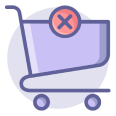Daycare! Two words that can stir any parents’ interest and anxiety! Leaving your child in the care of anyone else is not easy, and we all keep fantasizing about that perfect daycare.
While nothing can substitute parents, good daycare is essential for every parent as they get back to their day jobs after the birth of a child.
It's a good idea to start looking at least two months before you plan to go back to work. In some big cities, you might even want to start checking out your options before the baby arrives.
Finding The Right Fit
So what do you need to look for when you select a daycare for your child? The obvious benefits of daycare are the socialization, the availability of someone dependable, a routine for the child, etc.
There are very practical parameters like distance from home and workplace, the fees, etc. But what more do we need to look at?
Do your research. The grapevine is a good place to start. Get recommendations from other parents and your pediatrician You can also check online resources for childcare.
Reliability. Most centers stay open for about 12 hours to support a variety of parent schedules. So look for one that is open early enough or late enough depending on your schedules.
Trained staff. It’s important that your child is in the hands of staff who are well trained and licensed. Have they been trained on emergency first-aid? What should they do in an accident? Do they know about simple hygiene and cleanliness?
Exposure to illnesses. Your baby is exposed to more kids, so what are their vaccination and quarantine policy? How do they cater to kids who are unwell?
Interview centers and schedule visits. Screen centers and in-home daycare providers and scratch them off the list if they are not forthcoming. Then trust your gut. If something doesn't seem right to you, it probably isn't right for your baby, either.
Check references. Ask for references, look for ratings, and connect with parents who have had their kids in the daycare.
Surprise visits. Stopping by unexpectedly is a good way to see how things work on an everyday basis.
The questions you can ask can range from their qualification to previous experience. Find out if they let parents get involved. What are the health requirements of caregivers?

What do they serve kids to eat? Wholesome, safe and appropriate food for the ages of the kids is the very least you can ask for. Do they pay attention to allergies and special requirements if any?
High turnover of staff is a bad sign. It could mean the workers aren't paid well and/or aren't qualified for childcare.
How is the staff screened? All daycare workers should have had a complete health and criminal background checks. Ask if you can see proof of this if you come to inspect the facility.
Caregivers should genuinely seem energetic, patient and genuinely interested in the kids. An end of the day visit will go a long way in seeing how they behave at the end of a long and tiring day.
A stimulating environment. The interaction between kids and caregivers and a stimulating environment are a must. The baby will be there for most of their waking hours. How does the staff keep the babies engaged?
Other items on your checklist must include age appropriate and safe toys, separation of age groups (toddlers and babies must be separate), locked doors, clean and healthy settings, caregivers hygiene, like washing hands after each diaper change, teething rings, pacifiers, and washcloths shouldn't be shared, no choking hazards, including small toys or playthings that can break apart into small pieces, childproof furniture, gates on open stairways, smoke detectors, clearly marked exits and fire extinguishers. Also, an emergency protocol must be in place.

It’s not easy leaving your most precious bundle in the care of others, but once you have checked on all this, you can do so with equanimity. Finally, look at your child for cues. Do they like the caregivers? Are they happy at the center? Are they learning?
Good daycares are an essential part of a productive workspace. It’s time to wave bye to your little one and go back to doing other things as well. Parents who have a little time to themselves and can enjoy a productive day are better parents. Happy parenting!

